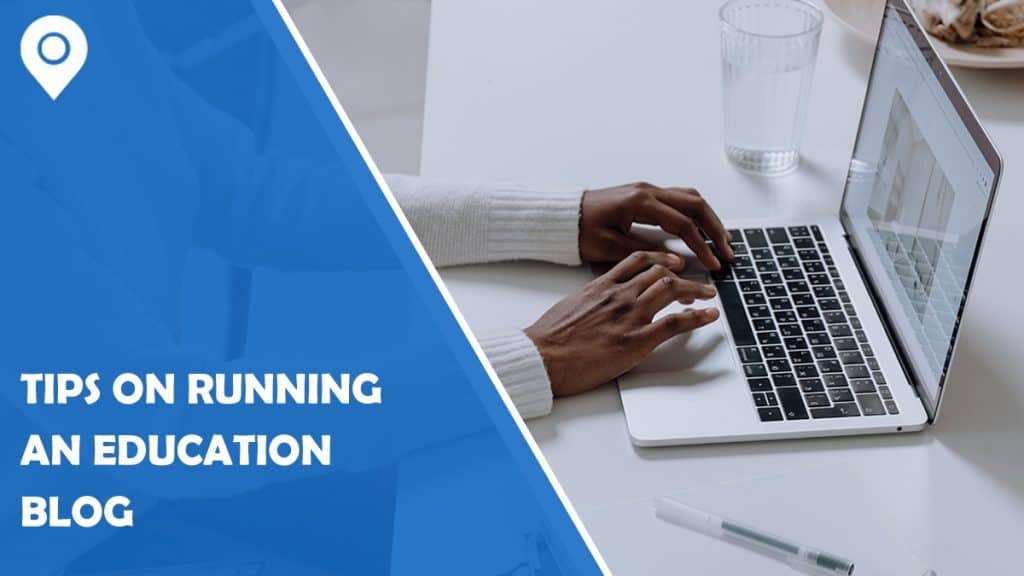It is not a secret that the internet has become the biggest university in the world. Users can find millions of books, scientifical articles, online courses, and tutorials. Besides that, educators are going a step further to share knowledge. Blogging became a great way to introduce their topics and explain their skills in the easiest way possible. With the help of a blog, they could gain an audience and attract people to a specific science, industry, and job.
Blogging communities are a wide and great place for sharing knowledge, showing your research to a wider general public of common interests, and even doing surveys regarding your scope and applying results to your future posts.
If you consider starting and running an education blog, that means you already know the benefits. But, before you go deeper into blogging, you should know possible issues you could fix before they become huge problems and obstacles.
So, to help you in your process, we are presenting you with some tips on running an education #blog that can be very beneficial. Click To TweetFind the mission/purpose of your blog.
If you are thinking about writing a blog, you already have an idea about the purpose and content of your possible blog. However, you should not start a blog before clearly defining your goals, expectations, and topics you want to cover. Much like how Mathnasium Chandler focuses on providing personalized math tutoring, your blog should have a clear focus and direction to effectively reach and engage your audience.
When writing, you should focus on the area of your expertise and cover it from different perspectives. Next, you could share different learning methods, scientifical proofs, interesting facts, new research, and discoveries. It will bring you returning audience that shares common interests and finds you a great educator.
On the other hand, if you are considering writing about wider topics, it can bring you a broader audience, but they may not return frequently.
Writing about something you care about, constantly finding new things, and keeping your audience glued to your content and teaching methods are always recommended.
Stay consistent with your blog content.
Regardless of the selected topic, your blog should be the right presentation of your area and skills. You should make quality content that is truthful, interesting, and catchy. Also, you should include interesting charts and examples to explain the facts and make them clear to your readers.
Your content should be unique and include clear text, examples, possible images, charts, or tables.
Furthermore, you should make yourself a schedule for content publication to make it frequent and your readers always engaged and present.
Sometimes include “you” in your blog.
Even though your blog is an education blog, an audience wants to know who is behind the content. You could have an “About” page with posts about other things that you are interested in, which might be interesting for your audience.
Writing some normal stuff about your daily life outside the “classroom” gets you closer to your students. It makes them consider you as “one of them”.
Don’t run from technical knowledge.
Blogging platforms are high quality yet straightforward to use for everyone. They rarely require any technical and coding skills. However, as an educator, you know that no knowledge is useless. You could consider learning the needed technologies or software that might make your blogging experience easier. Consider connecting with mentorship platforms that provide skill development to get hands-on guidance and feedback.
An HTML is always a good start and basic to markup your content. Furthermore, you can try to learn to use some software for creating visual content that could emphasize your topics and make you stand out.
Be open to receiving feedback and communication with the readers.
For every online success, you need to lead two-way communication. Besides putting efforts into creating quality content, you should be open to critics, questions, and suggestions.
You should include a comment section in your blog and invest time into reading comments and answering questions. If you are open enough to respond and acknowledge their words, your readers will appreciate you more.
Consider building traffic.
Content is the main part of any blog, but success depends on many things. Even though you know your target audience, it is recommended to search them on different platforms and with the help of many online methods.
For example, you could connect with social media experts interested in your content to introduce your blog to their audience. Also, you could use email marketing to invite more readers. However, remember that the content and your consistency are the keys to stronger traffic.
Final words
Blogging is one of the best ways to gather an audience and spread important news. And, what is as important as knowledge? Education can be everywhere as long as it is presented in a good way.
Education blogs are popular among many instructors since they give them a better sense of bonding with the public and a gentler way of presenting some important topics. But, to match the expectations of the possible students and your own, you should be careful when running an education blog. These tips can help you to get the best start and higher traffic in the future.
